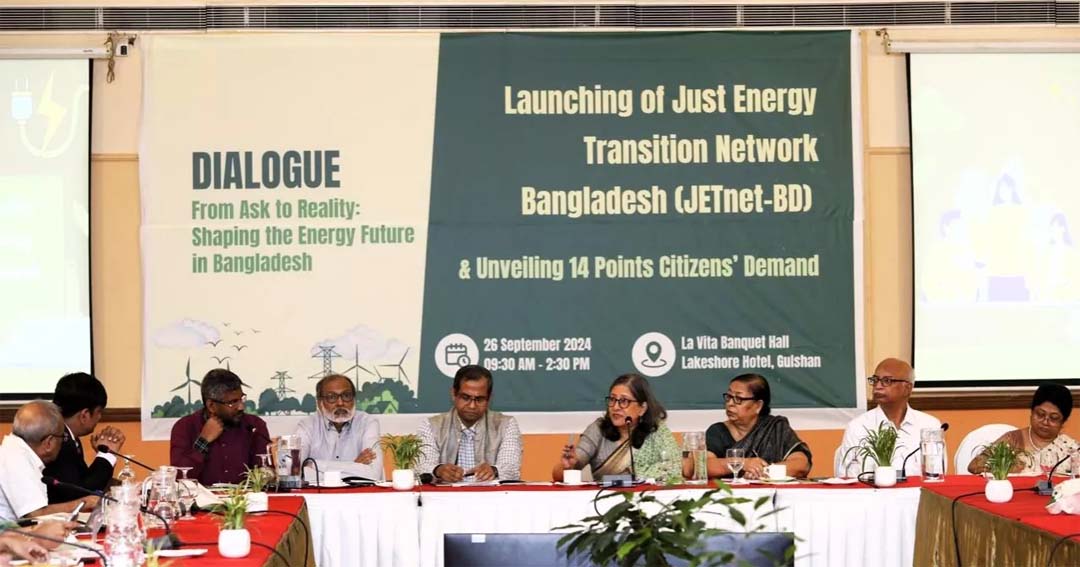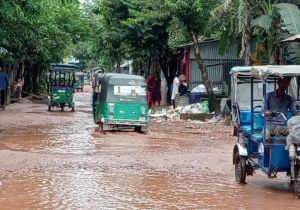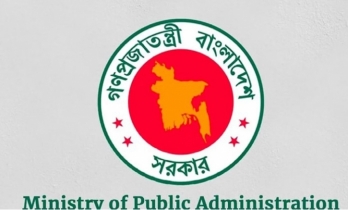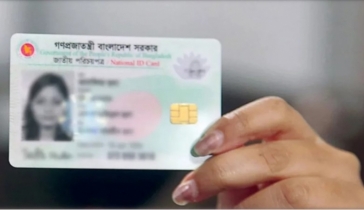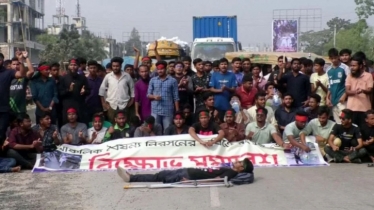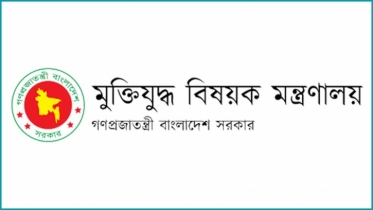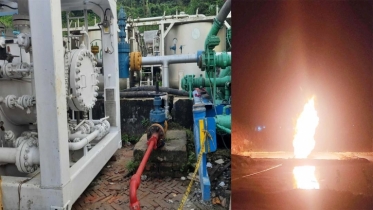Speakers at a seminar on Thursday said that negligence in local gas exploration and focus on importing LNG have created the current energy crisis for which the country has been experiencing huge load shedding despite overcapacity in power generation.
At the seminar titled ‘From Ask to Reality: Shaping the Energy Future in Bangladesh’, they also suggested the government put more focus on the development of renewable energy to achieve sustainable energy security.
'Just Energy Transition Network Bangladesh (JETNET-BD)', a platform of 70 civil society organizations (CSOs), national and international development agencies, local organizations, energy sector experts, and environmentalists, organized the seminar at a city hotelon the occasion of its debut.
The organizers said the JETnet-BD will work on energy governance, affordable energy, green jobs, women's participation in a just and green energy transition, energy efficiency, energy conservation, environmental and community protection, campaigning, and strengthening regional cooperation.
Md. Abul Kalam Azad, Manager of the Just Energy Transition (JET) team at ActionAid Bangladesh, presented the network's goals, objectives, and necessity.
Following the network's launch, a 14-point citizens’ demands for a just energy transition, formulated with the advice and guidance of energy and environmental experts, was announced.
Eminent energy expert and Professor of BUET Dr M Tamim said though the world has been pursuing to develop the renewable energy Bangladesh Power System Master Plan (PSMP) 2010 and 2016 have no mention of it.
“The recently prepared energy and power master plan also failed to pay emphasis on renewable energy’s development,”he added.
Rather, the previous government developed 8,000 MW of coal-based power plants on which the country will have to be dependent for the next 20 to 25 years, he added.
Even the current grid system, which has not been turned into a smart grid, can only accommodate a maximum 4,000 MW of solar power.
He also observed that the country has no transition plan to go to renewable energy from fossil-fuel based power generation. “We’re energy-wise the poorest country and our people are the most deprived of modern energy.”
He noted that the country’s most successful solar home system which was introduced in the rural areas has been destroyed in the name of 100 percent electrification only for political reasons.
Former BUET teacher Prof Ijaz Hossain said, “Though some large base load gas-fired power plants were developed in the country we have no gas to supply to those plants.”
These plants were set up without ensuring gas supply, he added.
He said the country has a good prospect of development of 2000 MW rooftop solar which could save $500 million annually.
Dr Khondaker Golam Moazzem, Research Director ofCentre for Policy Dialogue (CPD) stated, “We need to consider advocacy to persuade the government to prevent new coal-based power plants and accelerate the retirement of existing projects.”
“With the support of JETnet-BD, we need to develop a detailed action plan and implementation strategy for building a renewable energy-based supply chain,” he added.
Mbuso Gaufila, Senior Energy Specialist at the World Bank said, “Moving away from the unilateral impact of solar power, more attention can be given to biogas usage and biomass-based power generation and technology innovation at the local level.”
Naznin Akther, Director of Business Development at Solaric Group, said, “In the industrial sector, where electricity is generated at Tk 11 to 12 per unit, solar power can be generated at only Tk 3 to 4 taka per unit.”
Shafiqul Alam, Principal Analyst (Fuel), Institute for Energy Economics and Financial Analysis (IEEFA), B. D. Rahmatullah, former Director General of Power Cell and Prof. Dr. Khusru Mohammad Salim of Independent University attended the seminar while Farah Kabir, Country Director of ActionAid Bangladesh moderated its.

